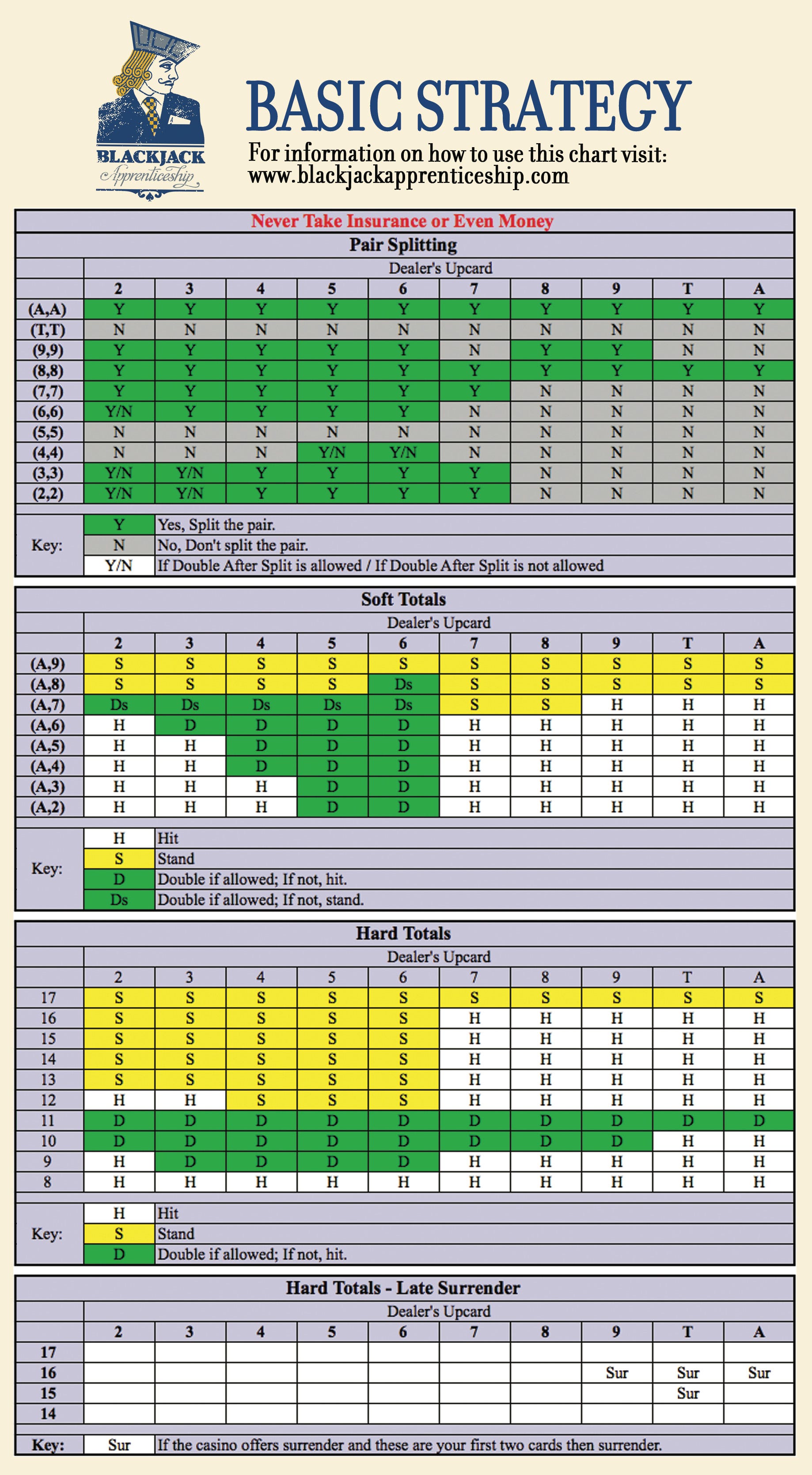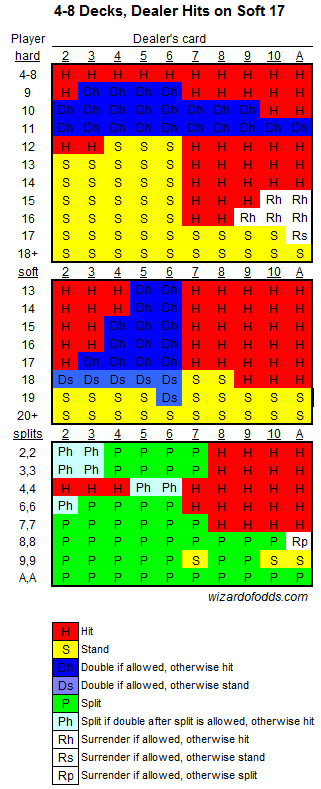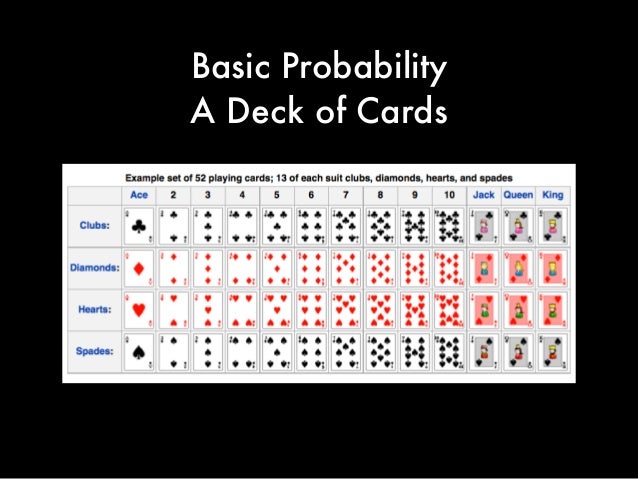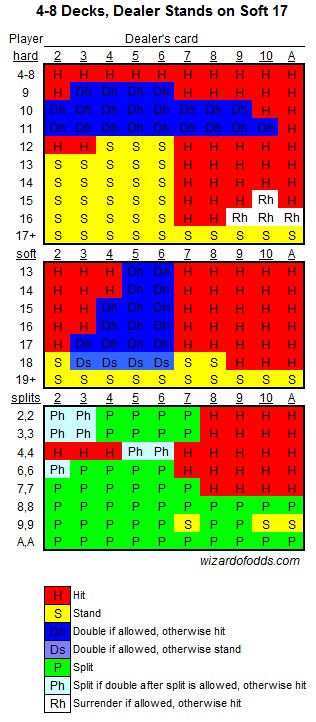- In this article we are going to teach you how to evaluate eight-deck blackjack games. For the purpose we utilize computer-generated eight-deck game simulations. In this case we set the number of players to four, the total bankroll is set to $10 000 and the risk of ruin is a constant (5%).
- Having started with a 10, your chance of finishing with a blackjack is accordingly slightly better in a six- than an eight-deck game, 7.717 as opposed to 7.711 percent. Including the inverse ace first and 10 next and combining the chances associated with both cards, the probability of a blackjack works out to 4.749 percent with six decks and 4.
See full list on wizardofodds.com.

My bankroll is at $15,000, I was thinking about a spread of 1-12 playing $5 min tables my max bet being $60
Holy crap that's a good bit of change for that spread. If you don't get any heat you should make money.
Card Counting, 8 Deck & Cutting Card Discussed In Blackjack ...

Do you think 4,000-5,000 is a more reasonable bankroll for this spread ?
More bankroll is always better. Basically your Risk of Ruin is pretty low with that bankroll spreading 5-60, which is a good thing! You should spread higher, if possible. No DAS is a weird rule to have at an 8 deck game, especially a S17 8 deck game. I have never seen a S17 8-deck game, to be honest.
You are playing with an advantage, assuming everything you say is true and you are competent. Not sure how much of an edge, though. 75% pen is pretty bad for 8 deck.
8 Deck Blackjack Chart
More bankroll is always better. Basically your Risk of Ruin is pretty low with that bankroll spreading 5-60, which is a good thing! You should spread higher, if possible. No DAS is a weird rule to have at an 8 deck game, especially a S17 8 deck game. I have never seen a S17 8-deck game, to be honest.
You are playing with an advantage, assuming everything you say is true and you are competent. Not sure how much of an edge, though. 75% pen is pretty bad for 8 deck.
That might be the trade off for a 5 dollar min game with s17.
It's a good game to practice and hone your skills, but not a good money maker.
See you at the tables, man.

1.) learn Basic Strategy perfectly
2.) learn Hi/low perfectly
3.) Keep your decisions reletively simple (hit 2-card 16 vs. 10, but stand 3-card 16, DD 9 or Soft 18 vs. 2, 11 vs Ace, etc.) don't go that extra mile at +EV, build confidence
4.) Spreading 5-60 at a game with an EV of -0.6% isn't gonna win much... like maybe 60 units ($300) in 50,000 hands. But is a good solid way to get involved. A better Stand soft-17 game is on the East Coast, with DAS, Split 4 handed, and Surrender (EV -0.35%). The 8-deckers on E. Coast are 75-85% penetration.
5.) The cut-card has little effect (maybe 0.02%) on 8 decks. You will find that generally a shoe will stay good or stay bad longer than games with 2 decks. When bad leave. When good stay.
6.) Keep this little rule in mind... don't raise your bet until you win at the better 'level', and then limit it to a double-up. But ALWAYS reduce the bet when the score indicates to do so, and always make the correct bet when reducing.
- Page 1 of 2

Blackjack is a game of skill. Card counting in decks can help players gaining an advantage in the game. Edward R Thorp is considered the father of card counting. He discovered the principles of card counting and published his method in 1962 in his book Beat the Dealer. His book started the Blackjack revolution and it was also instrumental in the casinos taking action to ban card counters. Card counting is not illegal but casinos can ban players from playing blackjack if they detect that a player is counting cards.
Blackjack cards remaining in the deck
In the game of blackjack the probability of winning a hand is dependent upon the mix of the cards remaining in the deck. If the mix of cards remaining in the deck contains high value cards, it is a positive and is favorable for the player. When the deck contains a large number of tens and aces it increases the players chances of drawing a pat hand (17 or higher) or getting a natural blackjack. It also increases the chances that the dealer will bust. Even though the dealer is just as likely to draw a good hand when the deck is positive, the player is getting paid 3 to 2 for a natural blackjack. What makes blackjack different from any other casino game is that the house edge is not fixed. The odds of getting a natural blackjack are dependent upon the cards that have already been dealt and the cards remaining in the deck. If an ace is dealt on the first round the odds of drawing another ace has gone down. If the cards remaining in the deck are low value cards, it is negative and it favors the dealer. Card counters usually lower their bets when the count is negative.
6 and 8 deckts counting cards
The concept of counting cards is simple. Each rank of card is assigned a point value and the card counter adds or subtracts those points to get a “running count” to determine if the deck is positive or negative. There are many different card counting systems used by the players. They are all designed to keep track of the high and low cards left in the deck. The values off to the cards determine whether a counting system is balanced or unbalanced. A balanced card counting method such as the popular Hi/Lo values a complete 52 card deck as zero. When you use a balanced counting system you keep a running count of the cards as they are played but you then have to divide running count by the number of decks not yet played to get the true count. With an unbalanced method such as Speed Count or Knock Out (KO) the total of the 52 card deck does not add up to zero. A player starts with a predetermined number to tell him when the deck is positive or negative instead of using zero as a starting point. The advantage to using an unbalanced method is that it is simpler because you don’t have to estimate the remaining decks and convert to the true count.

Being a successful card counter takes more than just being able to keep track of the cards. Many players find that they can successfully count a deck in the privacy of the quiet home but then have difficulty in a noisy casino with all of the distractions. Camouflage their play also is a very important ability for a Blackjack player so he can go undetected by the casino pit bosses.
Being realistic is very important for a Blackjack player. Card counting will only give him a one to two percent edge over the house and the advantage he gains by card counting is based on the long run and your given results during any single session can vary greatly. When the deck is positive they dealer has just as likely a chance of getting the high cards as you do.